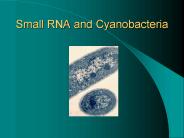Cyanobacteria PowerPoint PPT Presentations
All Time
Recommended
'Slippage' CRISPRs. Clustered Short Regularly Spaced Palindromic Repeat. Exact count of nuclotides ... Slippage? Where do CRISPRs come from? Picture credit: ...
| PowerPoint PPT presentation | free to download
Transform E. coli with Kai Biobricks to reconstitute KaiC phosphorylation cycle ... Blue Heron. DNA 2.0. Quote: $1.10/bp, 10-15 business days ...
| PowerPoint PPT presentation | free to view
Cyanobacteria THE FIRST ALGAE!!!!! Asexual Reproduction Akinete thick walled resting spore Function resistant to unfavorable environmental conditions.
| PowerPoint PPT presentation | free to view
Cyanobacteria oscillation is robust and temperature-independent (within living tolerances). The oscillation period can be adjusted from 14-60hours by point ...
| PowerPoint PPT presentation | free to download
Create KaiA, KaiB, and KaiC biobricks. ... Lanes 1, 6, 11: 1kb Lane 2 and 4: expected 210bp segment. Lane 3 and 5: expected 80bp segment ...
| PowerPoint PPT presentation | free to download
... will measure oscillation by doing Western blots of our ... The problem: Will our E. coli preserve current cycle phase between mothers and daughters? ...
| PowerPoint PPT presentation | free to view
During Proterozoic Age of Bacteria (2.5 bya 750 mya) they ... Marine littoral and pelagic. Fresh Water. Hot Springs. Terrestrial soil flora. Heterocyst ...
| PowerPoint PPT presentation | free to view
... to reconstitute KaiC phosphorylation cycle with Biobrick'd luciferase reporter. ... Using PCR to create and extract the correct constructs. ...
| PowerPoint PPT presentation | free to download
Title: A cyanobacteria bloom Author: Dr. Michael Parsons Last modified by: Dr. Jason P Turner Created Date: 1/23/2000 1:11:51 AM Document presentation format
| PowerPoint PPT presentation | free to view
Variations in species evolution can make interpretation difficult ... Spirulina sp. Schopf 1993. Fossil' structures part of larger forms that extend in 3 dimensions ...
| PowerPoint PPT presentation | free to download
What kind of algae' form these blooms? How does bloom occurrence vary seasonally? ... Accumulation in copepod body tissues and fecal pellets and potential for ...
| PowerPoint PPT presentation | free to view
Three proteins-- KaiA, KaiB, and KaiC interact to produce ... Prof. Susan Golden at TAMU for helping us with Western blot antibodies and general advice ...
| PowerPoint PPT presentation | free to download
Background Project Goal Cyanobacteria, also known as blue-green algae, are a phylum of ancient photosynthetic bacteria. They are the simplest organisms known to ...
| PowerPoint PPT presentation | free to download
PCC7942 is the most common strain we've encountered in the literature on ... Susan Golden at UT Austin. Alexander van Oodenaarden at MIT. Jeffrey Chabot ...
| PowerPoint PPT presentation | free to download
... other aquatic vertebrates Impacts on zooplankton ... Reduced growth rates Reduced fecundity Reduced longevity Increased mortality Large Daphnia most ...
| PowerPoint PPT presentation | free to view
Chloroplast. What is sRNA? Encoded in the intergenic regions. Why do we want to learn about sRNAs? ... Why have few sRNAs been found? Very small (usually 40-300 ...
| PowerPoint PPT presentation | free to download
Using LCMS to investigate fatty acid oxidation in cyanobacteria George Taylor
| PowerPoint PPT presentation | free to download
A Round-Table Discussion held during the 10th FEBS Meeting in Paris ... Twee. Nederlandse onderzoeksgroepen (Hagen, TUD en Albracht, UvA) werken nog steeds aan ...
| PowerPoint PPT presentation | free to view
Cyanobacterial Blooms: Toxins, Tastes, and Odors
| PowerPoint PPT presentation | free to view
dermal contact with toxins through bathing or recreational activities such as ... Recreational Bathing Waters (WHO): Special considerations: ...
| PowerPoint PPT presentation | free to view
Archae, Bacteria (Cyanobacteria) Goals. How do cyanobacteria protect secreted proteins? ... What is the TAT signal? (S/T)RRxFLK.[Non-hydrophobic] ...
| PowerPoint PPT presentation | free to download
Contain Chlorophyll a and carotenoids, plus the phycobilins (proteinaceous ... Richelia in some pennate diatoms * Nostoc in Anthoceros (Hornworts) ...
| PowerPoint PPT presentation | free to view
Phylogeny = evolutionary history of a group of related organisms ... Morphology, embryology, fossils, DNA, RNA, proteins. Taxonomic Classification. Domain ...
| PowerPoint PPT presentation | free to view
Frequency of Tandem Repeats in Cyanobacteria. Synechocystis PCC 6803 ... Nomenclature and first observation by. Mazel et al (1990) J Bacteriol 172:2755-2761 ...
| PowerPoint PPT presentation | free to view
Several mechanisms to study circadian phenomena S. elongatus PCC 7942 ... High interactions of Kai C indicate it may be driving force for circadian rhythms ...
| PowerPoint PPT presentation | free to view
Cyanobacterias as putative life support system in Martian conditions
| PowerPoint PPT presentation | free to view
Title: Physiological analysis of hydrogen photoproduction in cyanobacteria and microalgae Author: CEA Last modified by: Utilisateur Windows Created Date
| PowerPoint PPT presentation | free to view
Cyanobacterial Oscillator in E. coli Background Project Goal Cyanobacteria, also known as blue-green algae, are a phylum of ancient photosynthetic bacteria.
| PowerPoint PPT presentation | free to download
Discovery of Neuro-regenerative Natural Products from Marine Algae and Cyanobacteria ... A marine sponge compound, Lembehyne A, promotes neurite outgrowth ...
| PowerPoint PPT presentation | free to view
Cyanobacteria, also known as blue-green algae, are a phylum of ancient ... M. Nakajima et al., Reconstitution of circadian oscillation of cyanobacterial ...
| PowerPoint PPT presentation | free to download
... Regulation of nitrogen assimilation and its coupling to photosynthesis ... Some genes bear NtcA promoters might coordinate photosynthesis and nitrogen fixation. ...
| PowerPoint PPT presentation | free to download
Cyanobacterial Blooms: Toxins, Tastes, and Odors
| PowerPoint PPT presentation | free to view
Dr. Lee H. Lee Background Information Industry spills massive amounts of heavy metals such as mercury, selenium, ferric chloride, ...
| PowerPoint PPT presentation | free to view
1. 'putative urea ABC transporter, substrate binding protein' ... 4. 'putative hydrogenase accessory protein' 5. 'possible NAD(P) transhydrogenase beta subunit' ...
| PowerPoint PPT presentation | free to download
Genome and Repeat Characteristics in Cyanobacterial Genomes. Npun A7120 Tery Cwat ... S7942 W8102 P9313 ss120 PM4 Ecoli. General Characteristics ...
| PowerPoint PPT presentation | free to view
Hydrogen Production in Cyanobacteria. Solar. Energy. Biological Catalysis. Photosynthetic cyanobacteria. H2. cyanobacteria. sunlight. electricity ...
| PowerPoint PPT presentation | free to download
Multicellularity Colonies: cyanobacteria and choanoflagellates Sponges as organisms
| PowerPoint PPT presentation | free to download
Photosynthetic Prokaryotes Chapter 13 Kingdom- Bacteria Phylum- Cyanobacteria Cyanobacteria- Gram Negative Bacteria Gram positive- peptidoglycan layer; stains with ...
| PowerPoint PPT presentation | free to download
Electron flow in photosynthesis of cyanobacteria ... rotatory catalysis (twist. conformational change. ATP synthesis ) F1. F1. F0. s. t. a. l. k ...
| PowerPoint PPT presentation | free to download
Cyanobacteria attack rocks: control and preventive strategies to avoid damage caused by cyanobacteria and associated microorganisms in Roman hypogean monuments
| PowerPoint PPT presentation | free to download
MCB 2010L Organism Classification Domain Archaea Includes the extremophile bacteria Not looking at examples in lab Domain Bacteria Subkingdom Cyanobacteria blue ...
| PowerPoint PPT presentation | free to download
What Have We Learned From Unicellular Genomes? Propionibacterium acnes Bacteroides thetaiotaomicron Mycoplasma genitalium Mimivirus Cyanobacteria Plasmodium
| PowerPoint PPT presentation | free to download
Ch 27 Environmental Microbiology What do Microbes do? How can we use this to our advantage? Fertilization and microbes Cyanobacteria for a symbiosis with small ...
| PowerPoint PPT presentation | free to download
Water management strategies to combat harmful cyanobacteria in water ... axolotl (Ambystoma. mexicanum) (5000 cells = few g / L Chl.a) ...
| PowerPoint PPT presentation | free to view
Times New Roman Blank Presentation Cell Size Size Comparison Kind of CellSize ... Slide 17 Cyanobacteria Slide 19 Bacteria Capsule Slide 21 Swimming Bacteria ...
| PowerPoint PPT presentation | free to view
Phycocyanin is a water-soluble, fluorescent, blue pigment protein that belongs to the family of phycobiliproteins, which are the photosynthetic accessory pigments in cyanobacteria and certain red algae. It is obtained by extraction from Arthrospira platensis.
| PowerPoint PPT presentation | free to download
Estuaries Estuaries Estuaries ... cyanobacteria mats on mudflats mud more productive than ... and are essential to the stability of the salt marsh in trapping and ...
| PowerPoint PPT presentation | free to view
p53 system - regulates apoptosis in mammalian cells after strong DNA damage ... Circadian oscillations in cyanobacteria. Ken-Ichi Kucho et al. Journ. Bacteriol. ...
| PowerPoint PPT presentation | free to view
Week 3 Quiz: Merismopedia Anabaena 1) Why do these colonies of cyanobacteria have different organization / morphology? Give ONE reason. (2pts) Week 3 Quiz: 2) What is ...
| PowerPoint PPT presentation | free to view
Express different photosynthetic pigments in cyanobacteria ... http://www.mbari.org/staff/conn/botany/reds/daisy/phycocyanobilin.gif ...
| PowerPoint PPT presentation | free to view
Cyanobacteria (Blue-green algae) photosynthesis - i.e. Aphanizomenon flos-aquae, Anabaena ... Asexual reproduction of females ...
| PowerPoint PPT presentation | free to view
Mites, springtails, spiders, sowbugs, ants, beetles, centipedes, ... Pangola grass (Azospirillum) 10 50. Cyanobacteria. 50 150. Alders (actinomycetes) ...
| PowerPoint PPT presentation | free to view
Photosynthesis SBI 3C Overview All energy on earth comes from the sun. We depend on: Plants Algae (underwater plants) Cyanobacteria (photosynthetic bacteria) To ...
| PowerPoint PPT presentation | free to download
Before the Beginning Before the Beginning Living cyanobacteria Microfossils in carbonaceous chondrites First organisms had simple metabolism Atmosphere was O2 free ...
| PowerPoint PPT presentation | free to view
























































